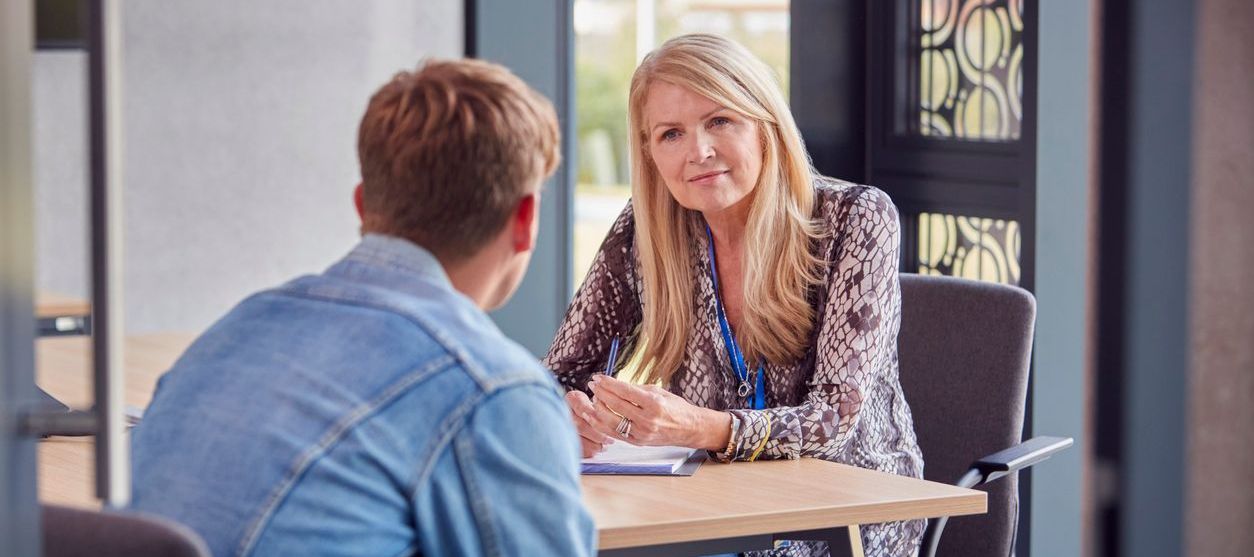-
Counselling Therapy
for Addictions
Find Qualified Counsellors & Therapists At
Affordable Fees Near You For Online Or In Person
Sessions. Request a Free Quote, review & book online!
Introduction to Addiction Counselling Therapy
Addiction counselling therapy, also known as substance abuse counselling or addiction therapy, is a specialised form of therapy designed to support individuals struggling with addiction in overcoming their substance use, addressing underlying issues, and building a foundation for recovery. It provides a safe and nonjudgmental space for individuals to explore their relationship with substances, develop coping strategies, and work towards a life free from addiction.
Common Issues Addressed in Addiction Counselling
Addiction counselling therapy can address various issues and challenges related to substance use disorders, including:
- Substance dependence: Addressing physical and psychological dependence on substances such as alcohol, drugs, or prescription medications.
- Cravings and withdrawal symptoms: Learning techniques to manage cravings, cope with withdrawal symptoms, and prevent relapse.
- Underlying trauma or co-occurring mental health issues: Exploring underlying trauma, anxiety, depression, or other mental health issues contributing to addiction.
- Triggers and high-risk situations: Identifying triggers and high-risk situations that may lead to substance use and developing strategies to avoid or cope with them.
- Coping skills and relapse prevention: Building coping skills, stress management techniques, and relapse prevention strategies to maintain sobriety and prevent relapse.
- Family and interpersonal relationships: Addressing challenges in relationships with family members, friends, or partners impacted by addiction.
- Legal or financial consequences: Navigating legal issues, financial difficulties, or other consequences of addiction and substance abuse.
Benefits of Addiction Counselling Therapy
Addiction counselling therapy offers a range of benefits for individuals struggling with addiction, including:
- Increased self-awareness: Gaining insight into the underlying causes and triggers of addiction, as well as the impact of substance use on one's life and relationships.
- Improved coping skills: Learning healthy coping strategies, stress management techniques, and emotion regulation skills to deal with cravings, triggers, and high-risk situations.
- Enhanced motivation for change: Exploring personal values, goals, and motivations for recovery, and building a sense of empowerment and self-efficacy in making positive changes.
- Stronger support networks: Connecting with peers, support groups, and community resources to build a supportive network of individuals who understand and can relate to the challenges of addiction.
- Better mental health: Addressing co-occurring mental health issues such as anxiety, depression, or trauma, and improving overall emotional well-being and resilience.
- Increased quality of life: Achieving greater stability, fulfillment, and satisfaction in life by breaking free from the cycle of addiction and pursuing meaningful goals and relationships.
Find Counsellors & Therapists Near You

Find Qualified Counsellors & Therapists
Near You, Get A Free Quote, Review Details & Hire
for Online Or In Person Sessions.
Goals of Addiction Counselling Therapy
The goals of addiction counselling therapy may include:
- Achieving and maintaining sobriety: Establishing a substance-free lifestyle and maintaining abstinence from addictive substances.
- Developing healthy coping strategies: Learning alternative coping mechanisms to deal with stress, emotions, and cravings without resorting to substance use.
- Identifying and addressing underlying issues: Exploring and addressing underlying trauma, mental health issues, or unresolved emotions contributing to addiction.
- Rebuilding relationships: Repairing relationships with family members, friends, and partners impacted by addiction and rebuilding trust and support networks.
- Enhancing self-esteem and self-worth: Building self-esteem, self-confidence, and a sense of self-worth independent of substance use.
- Creating a relapse prevention plan: Developing a personalised relapse prevention plan with coping strategies, triggers identification, and support systems to prevent relapse and maintain long-term sobriety.
What to Expect in Addiction Counselling Sessions
In addiction counselling sessions, therapists typically:
- Conduct an initial assessment to evaluate the individual's substance use history, treatment goals, and needs.
- Develop a personalised treatment plan tailored to the individual's unique circumstances, goals, and preferences.
- Provide education about addiction, recovery, and treatment options, including therapy, support groups, and other resources.
- Offer individual counselling, group therapy, or a combination of both to address addiction-related issues and provide support.
- Teach coping skills, stress management techniques, and relapse prevention strategies to empower individuals in their recovery journey.
- Offer ongoing support, guidance, and encouragement as individuals work towards their recovery goals.
When to Seek Help
Individuals struggling with addiction may consider seeking counselling when they:
- Experience difficulty controlling substance use despite negative consequences on their health, relationships, or daily functioning.
- Feel trapped in a cycle of addiction and are motivated to make positive changes in their life.
- Encounter challenges in maintaining sobriety, coping with cravings, or preventing relapse.
- Want to address underlying issues such as trauma, mental health issues, or unresolved emotions contributing to addiction.
- Desire support, guidance, and accountability in their recovery journey.
Find Counsellors & Therapists Near You

Find Qualified Counsellors & Therapists
Near You, Get A Free Quote, Review Details & Hire
for Online Or In Person Sessions.
How to Find the Right Counsellor
When seeking an addiction counsellor, consider the following factors:
- Specialisation: Look for a therapist who specialises in addiction counselling or has experience working with individuals struggling with substance use disorders.
- Approach: Choose a therapist whose approach aligns with your goals, preferences, and values for treatment.
- Credentials and experience: Verify the therapist's credentials, licensure, and experience working with addiction clients.
- Compatibility: Select a therapist with whom you feel comfortable, understood, and respected, and who creates a safe and supportive environment for addressing addiction-related concerns.
Addiction Counselling FAQs
- Is addiction counselling only for people with severe substance use disorders? No, addiction counselling can benefit individuals at any stage of their addiction journey, from those experiencing mild to severe substance use issues.
- How long does addiction counselling take to see results? The duration of counselling varies depending on factors such as the severity of addiction, individual needs, and progress in therapy. Some individuals may see improvements in a few sessions, while others may benefit from longer-term therapy.
- What if I'm not ready to quit using substances? Can counselling still help? Yes, addiction counselling can still be beneficial for individuals who are not yet ready to quit using substances. Counsellors can provide support, education, and resources to help individuals explore their relationship with substances and make informed decisions about their recovery journey.
- Is addiction counselling confidential? Yes, addiction counselling is confidential, meaning that information shared in counselling sessions is protected and not disclosed without the individual's consent, except in certain legal or ethical circumstances.
- Can addiction counselling help with relapse prevention? Yes, addiction counselling can help individuals develop personalised relapse prevention plans with coping strategies, triggers identification, and support systems to prevent relapse and maintain long-term sobriety.
LGBTQ+ Considerations
For LGBTQ+ individuals struggling with addiction, it's important to find a therapist who is affirming and knowledgeable about LGBTQ+ experiences and issues. Look for therapists who create a safe and inclusive space for discussing addiction-related concerns and navigating the intersection of addiction and LGBTQ+ identities.
Next Steps for Support & Recovery
If you or someone you know is struggling with addiction, know that help is available. Consider reaching out to a qualified addiction counsellor or therapy professional who can provide you with the support, guidance, and tools you need to overcome addiction, build a foundation for recovery, and create a healthier and more fulfilling life. Remember that seeking help is a courageous step towards healing and transformation.
Find Counsellors & Therapists Near You

Find Qualified Counsellors & Therapists
Near You, Get A Free Quote, Read Reviews, & Hire!
Online Or In Person Sessions.



